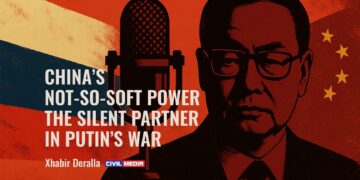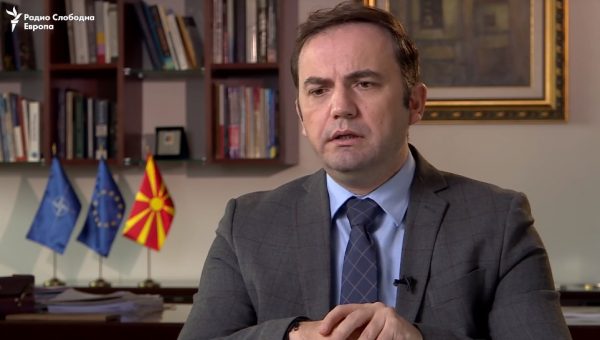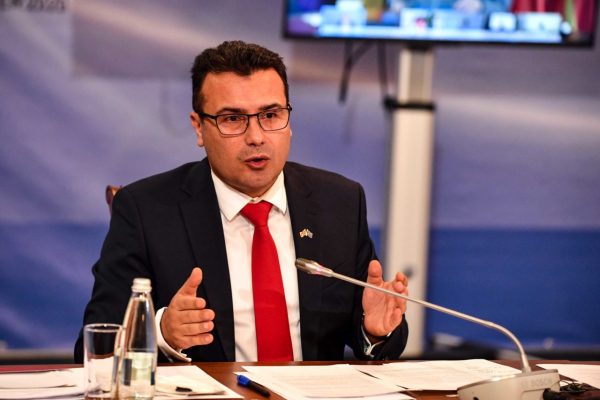All of us in the region have crossed histories, interests and future, so we believe we should cooperate in our European integration and resolve open questions as we go, without placing conditions on others, Foreign Minister Bujar Osmani said in an interview for Belgrade’s Politika given ahead of his working visit to Serbia on Thursday.
Speaking about the relations with Sofia and the Bulgarian blockade of the country’s European path, FM Osmani said the Treaty of Friendship, Good Neighborliness and Cooperation between North Macedonia and Bulgaria has introduced a new dynamics in bilateral relations, encouraging political dialogue, promoting trade and expanding cooperation in many fields, including culture, education, defense, and local self-government.
“In addition, together we formed an expert committee on historical issues, which should consider the controversial issues of history,” Osmani said, noting that the experts should draw conclusions based on historical facts.
“But what’s most important,” Osmani continued, “is that the agreement separates historical issues from politics, and politics from history.”
He highlighted that historians, in line with the Friendship Treaty, should be left to discuss historical topics while the countries work on improving political and economic cooperation.
North Macedonia’s Foreign Minister also stressed that although the country’s relations with Bulgaria have lately been burdened “by differences in a historical context,” he still believed these differences could be bridged.
“Implementing responsible policies and taking mature steps for the future of the country is not easy, and often not even popular,” Osmani told Politika.
“But we believe our citizens recognize our efforts and honest intentions and that future generations will be grateful to us,” he added.
On the attempts made by some circles in Prishtina toward uniting Albania and Kosovo, Osmani commented that redrawing any borders in the Balkans and Europe was a non-issue, considering EU membership neutralizes any need of changing borders and creating “great states.”
“The region should become a generator of security and development at last. These should be our main arguments in the globalization race. There is no time to wait,” North Macedonia’s Foreign Minister said, adding that the country supports the dialogue between Belgrade and Prishtina and would accept any solution their negotiations result in, provided it doesn’t threaten regional security.
In the interview, Osmani also addresses the Covid-19 pandemic, noting that Serbia’s donation of vaccines to North Macedonia has been a glowing example of friendship and good neighborly relations.
“This gesture has strengthened the friendship between our countries and brought positive energy into the region,” Osmani told Politika.
“The pandemic is a global problem, and global problems require global solutions. This is why we are of the opinion that we need a multilateral approach based on cooperation and togetherness.
“This cooperation between North Macedonia and Serbia has instilled hope that, with such gestures, we can encourage everyone in the region to think of others, too.”

















